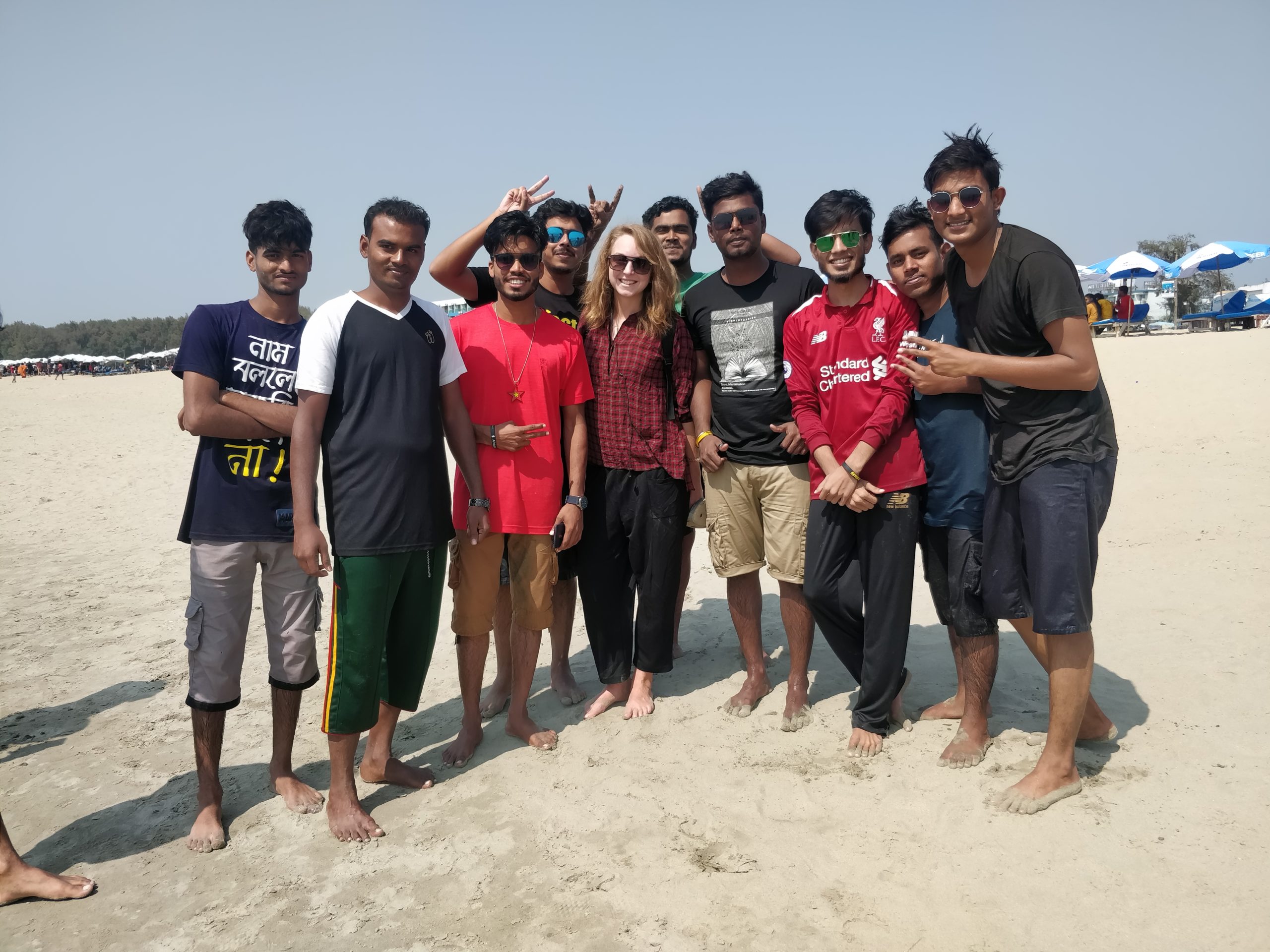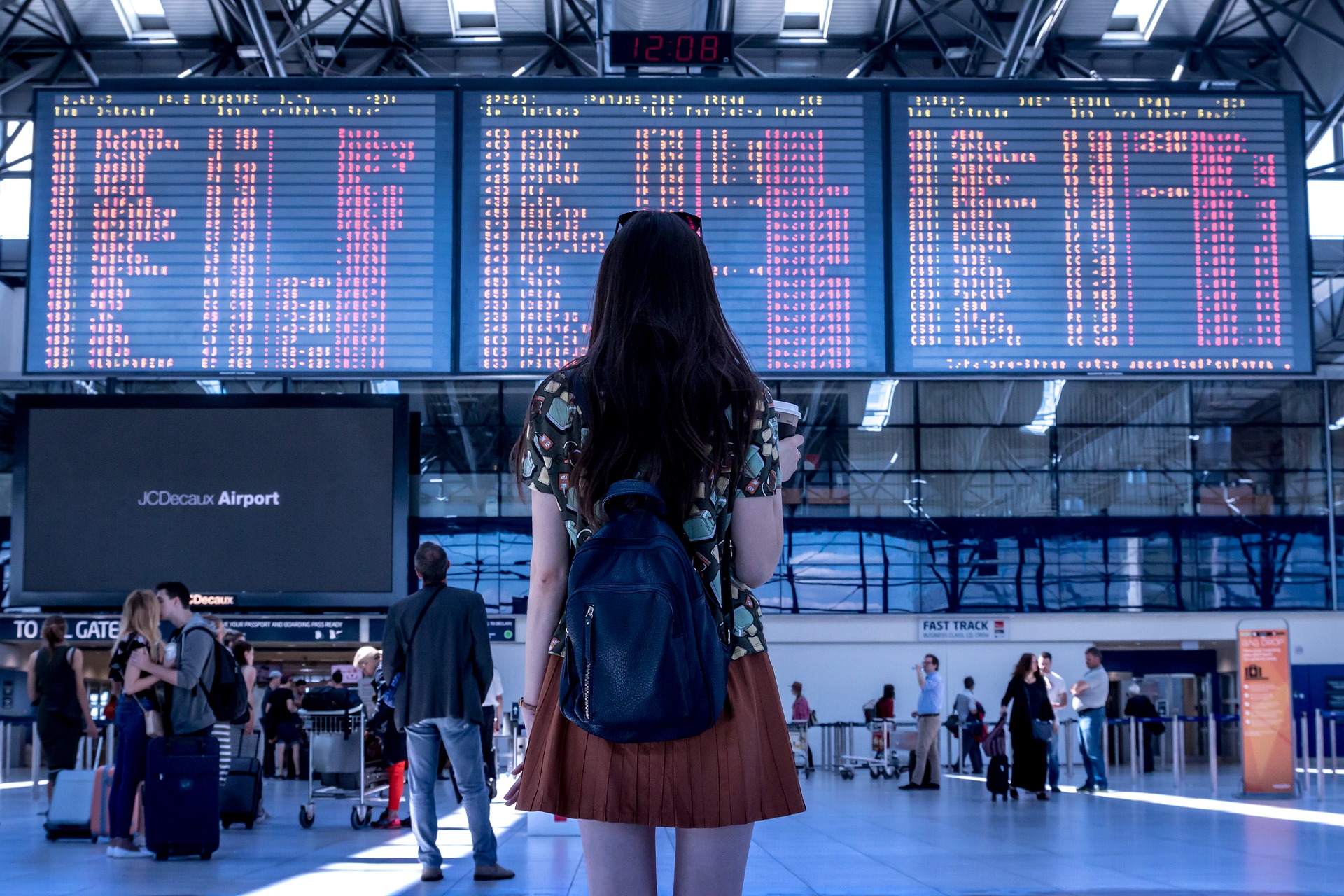Reverse Culture Shock: What Is It? And How Do I Deal With It
Reverse Culture shock..? Come back from an amazing time abroad and feel like everything has changed? Does no one understand you? Nothing is exciting anymore? Restless, isolated, and bored?
Well, you just may be experiencing a phenomenon called ‘Reverse Culture Shock’.
We’ve all heard of culture shock, the uneasy and unsure feeling we get when introduced to a new culture or country, heightened if that country or culture is especially different from our own. But how can you experience this shock at your own culture? It’s possible, and actually, in a world of increased globalisation (apart from 2020…) many more people are moving abroad because of work or other commitments, only to come back and experience this bizarre sensation.
If you thought culture shock was hard enough, try reverse culture shock!
As a frequent experiencer of reverse culture shock, I look at what it is, why we experience it, and how to deal with it.
RELATED: Covid Trapped: How I Made A Life While Marooned in Paradise
What is Reverse Culture Shock?
Reverse culture shock is the emotional stress people suffer who have spent a long period of time abroad and come back to their home or home country.
Popular symptoms include;
- Restlessness
- Boredom
- Lack of sense of belonging
- Isolation
- Depression
- Uncertainty
- Confusion
- Isolation
- Wanting to be alone
- “Reverse homesickness” (Or Fernweh, in German. The opposite to Heimweh, homesick.)
Usually, the longer time spent abroad, the more you are likely to experience reverse culture shock.
Why Do We Experience it?
There are lots of reasons why we might experience culture shock, and of course it depends how long you have been in the country and culture and how well-immersed you found yourself.
Reverse culture shock might also be worse if you particularly loved the country and culture and you are not leaving out of choice. Or, if you had tried particularly hard to immerse yourself completely in the culture.
Ultimately, after being surrounded by one culture that you are actively trying to accept for many weeks, months, or years, it’s only natural that a transition back to your own culture won’t be easy. Added onto this are the facts that an experience abroad is often exciting, filled with adventure and new things. You’re likely to have made many new friends and learned a new thing or two. So getting back to your normal routine can be a bit jarring.

Signs of Reverse Culture Shock
As mentioned above, there are some key signs you’re experiencing reverse culture shock. Of course, this is not a medical diagnosis and if symptoms persist or get severe you should see a doctor.
Let’s look at each of these signs in more detail.
Boredom
Life abroad is fun, it’s exciting. Depending on how long you’re there for, every day might be an adventure full of learning and new experiences. It might even be tough, difficult, challenging. Either way, living abroad is hardly ever boring. Until you get back to your old routine. And once again, everything is… normal? It’s not difficult, it’s all very familiar. Too familiar?
Try to pick up a new hobby or start to plan your next adventure abroad.
“You don’t get it…”
In the same was as trying to explain a joke second hand or an inside joke amongst friends, you may experience the feeling that people just don’t understand where you’re coming from with some things. You may explain how amazing something is, but you might feel like it’s falling on deaf ears. They may listen, but do they really get it? Probably not.
Try to find people who have been to the same place as you, even online. Or keep in touch with your friends back home to keep those inside jokes alive.

No One Wants to Hear About It
This leads to the next point. Sure, people may be excited to see you again and want to hear about everything you’ve been up to. So on that first dinner together, you might talk their ears off. But on the 2nd, 3rd, 4th and 5th? Being abroad has been a big part of your life for the past few months or years. But it wasn’t part of their life, so there is only a certain amount they can relate to – and only so much they want to hear. They may also experience jealousy from your stories which causes them to want to hear even less.
It’s hard to accept that no one wants to hear about your amazing experiences all the time, but you should probably find a different outlet to keep the memories alive. Maybe you could consider writing a diary, blog, or book of your experience?
It’s Hard to Explain
“There is this great thing they do there, and it’s like… you know… with the… oh it doesn’t matter you won’t get it but it’s really amazing”.
Your friends and family might not get why you want to talk about it all the time. Or why it was so great. And, you’re probably not going to be able to explain it to them. Because at the end of the day, it’s something that needs to be experienced first hand to truly understand.
Be prepared to not be understood, to alienate those around you, and to be alienated yourself.
Reverse Homesickness
Of course you’re going to miss it. It’s been a big part of your life, and no matter how much you were looking forward to seeing your friends and family and pet dog again, you’ll miss it.
It’s important to accept this feeling and revel in the fact that you’re lucky enough to have had two homes you love. You were homesick when you left, and now you’re reverse homesick. Not many people can say they have so many places they feel so at home!
RELATED: I Have Been To North Korea Almost 30 Times & Counting…Why Do I Keep Going Back?

Relationships Have Changed
Friends have grown up, got boyfriends, girlfriends, they’re married, pregnant, or already have children you would never have recognized. Whilst you’ve been away, people have been getting on with their lives too. So don’t expect to get back to everything as you’ve left it, and when you found out that you’ve missed out on a lot that might be difficult to cope with too.
You can prevent this from happening to a certain extent by keeping in touch as much as possible with those who matter whilst you’re away.
“You’ve Changed”
Going abroad, you’re probably going to experience a lot of changes and growth within yourself. Of course, everyone grows over the years regardless of where they are, but going on a lot of new adventures and experiencing lots of new things can speed up this process, or at least exaggerate it. Your friends and family might see this with critical eyes. They may not like what living abroad has done to you and say that you have changed. They may find it difficult to accept, and you may find it difficult to accept this reaction.
Coming back is a great time for self-reflection. Whilst you shouldn’t ignore what your friends and family have to say, you also don’t need to take their word for it if they say your new character changes aren’t great. You know what is best, in the end.

Alienation
You felt at home in your new home, and now you have to feel at home in your previous home that’s… no longer how you left it as your home? Alienation is hard to deal with. And on top of this, you may experience seeing your own culture through critical eyes. Seeing things about it as an outsider looking in and seeing things you don’t like or think could be improved.
Channel this energy by creating positive change in your neighborhood, on your street, or even further afield!
Can’t Apply New Skills
Learn a new language abroad? Learn how to climb coconut trees? Learn how to kayak? Suddenly you’re home, and you can’t use these new skills or do these new hobbies anymore. This can lead to restlessness and frustration.
Try to find a platform to still keep these skills up, for example online platforms or learning forums. If it is something that can’t be done online, you might want to start planning your next adventure around using this new skill.
How to Deal with Reverse Culture Shock
Aside from the above tips, let’s take a closer look at how we can deal with reverse culture shock. Or, indeed, how we can help prevent it in the first place.
Maintain Relationships
The degree of reverse culture shock experienced may correlate with the amount of communication you maintain with friends and family whilst you’re away. Keep in touch with everyone and on top of what’s going on back home (very easy now with the help of platforms such as Zoom!) And you won’t be so surprised when you get back.

Introduce Your New Culture
No one understanding? Well, help them to understand, and bring some of your new learned skills and culture to them. Cook them something traditional or teach them a new skill, show photos and help them to become a part of your life abroad as much as possible.
Inspire Others
Moving abroad is not easy. Well done for doing it! And now it’s your time to be an ambassador for it. Not everyone has the courage to do it straight away and some need a bit of encouragement. If you want someone to have a similar experience to you, then why not spend some time inspiring others by talking at schools or events.
Home Routine
Why do you have to give up everything you did abroad? Why not incorporate some of your abroad habits with your home habits? Your boss might not be happy with the afternoon siesta you learned in Italy, though.
Stay in Touch
Stay in touch with your friends and family abroad. It’s goodbye. But not a forever goodbye. Even if you never physically see them again, you don’t have to say goodbye to those people and memories.
Culture Shock
Remember how you first felt when you moved abroad? Probably similar feelings to right now, right? It will pass. Time is the biggest healer, and the tips here will help to speed it up. But don’t rush it. Be patient.
Stay Adventurous
Your first adventure may be over. But what about the next one? And the one after that? You’ve moved back home, but that doesn’t mean the end of your adventures. Maybe your next one will take you to the next city, maybe the next continent. Life is full of surprises!
Reverse Culture Shock – Final Thoughts
Reverse culture shock, like culture shock, doesn’t last forever. But, it may keep coming back if you keep going abroad! Like most things, time is the biggest healer. It’s a process and many others will go through it too, but the experience is unique to you. Use this time to think about how much you learnt, the new culture you embraced, and how you’ll apply this positively in the future!




This describes my college experience. My hometown was about 90% Hispanic/Latino and Asian. Being 5’9” in this sort of community made me feel tall (or at least not short). Then I went to college about 130 miles away where the population was 60% Caucasian. I didn’t notice the size difference until I was playing a pickup basketball game and they kept saying, “I got the little guy.” I looked around and noticed they were taking about me. This was a little culture shock. But when I’d go home and watch a movie, I’d almost feel uncomfortable from all of the hispanic/Latino and Asians even though I grew up in this environment my entire life. I had only been at college for 2 months at this point because I came home for thanksgiving break. Strange feeling.